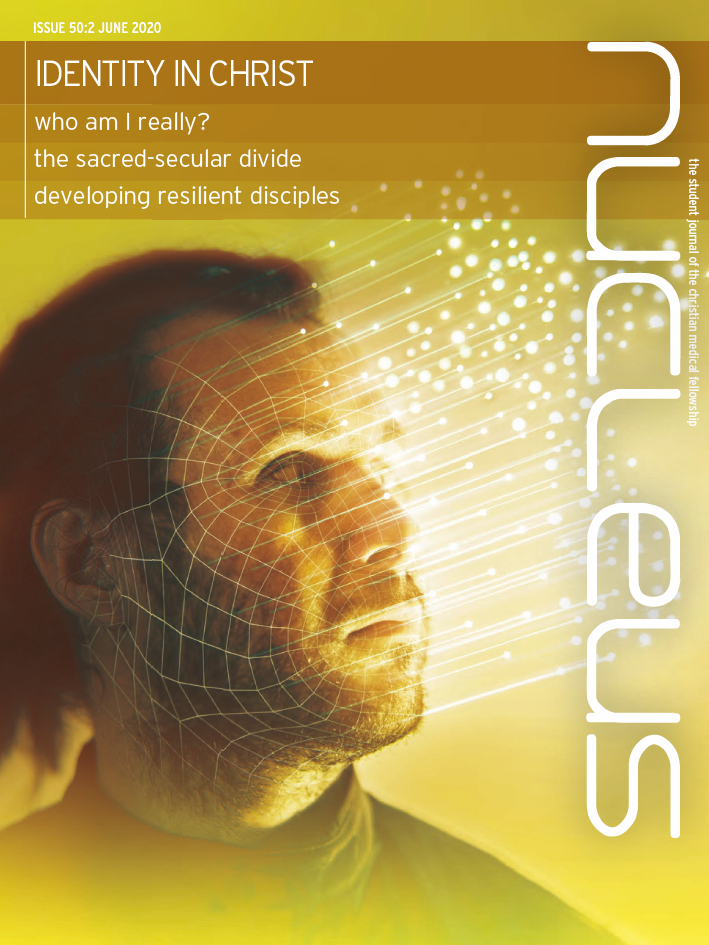'Go and make disciples of all nations...' (Matthew 28:19)
University can seem a challenging time to obey this well-known scripture. Many of us may intend to share our faith but find barriers that many of us will be familiar with. This is not made any easier by the pressures of university culture and the affirmed scientific principles of medicine that can pose a challenge to one's faith. It is no wonder that spreading the gospel at university may seem, at first glance, a little overwhelming. Here, in no particular order, are some things that might help us share our faith.1. pray
Though we can do many things to help our non-Christian friends, all are underpinned by praying for them. We must surrender the rest of the work into God's hands.2. choose how to live your life
Perhaps one of the most important ways we can serve Christ at university is by how we choose to live. In showing kindness, love and hospitality to others, we can be torches for Christ in our communities. Our behaviour or response to a situation could touch the heart of a colleague or friend, piquing their curiosity as to what motivates such conduct. Matthew 5:15-16 reminds us:'Neither do people light a lamp and put it under a bowl. Instead they put it on its stand, and it gives light to everyone in the house. In the same way, let your light shine before others, that they may see your good deeds and glorify your Father in heaven.'
3. know and tell the gospel
Have a clear gospel outline firmly fixed in your brain ready for use. Not that many people usually ask 'what must I do to be saved?' but having something ready for when someone does will increase your confidence, and help you better discuss aspects of the gospel as they arise. Knowing an outline will often help your own understanding as well. CMF's favourite one is outlined in Freshers' Nucleus [1] — there are plenty of others as well.4. share how you cope with life's challenges
Talking with fellow students about their support network, how they cope in difficult times and what they find gives their life purpose can help form friendships that lead to meaningful discussion. We need to listen to and understand our friends better as individuals, as well as introducing them to Christ. Those close to us may well have questions about our faith or would even like to understand us better. Of course, it is important to be sensitive and mindful of each other's boundaries and the Bible reminds of this in 1 Peter 3:15:'But in your hearts revere Christ as Lord. Always be prepared to give an answer to everyone who asks you to give the reason for the hope that you have. But do this with gentleness and respect.'
5. use your testimony
Is there a time in your life where you felt that God's hand really delivered or helped you through a difficult time? Is there someone in your life facing adversity similar to what you have experienced? Often when facing personal challenges, it can be difficult to reach out to others. This, coupled with today's culture that champions independence and self-sufficiency, can lead to people facing testing times alone. Christians can be sources of comfort for those facing adversity. Why not reach out to a friend who you know has been going through a tough time and listen to how they have been feeling? Perhaps we could share with them how we navigated a similar period of our lives and how our faith helped us through.6. watch a film
This might spontaneously bring up spirituality and religion, for example if a film explores the ideas of longevity, faith or existence. Perhaps this could be used as stimulus for a deeper discussion and it is certainly worth trying if you are thinking of ways to spark a conversation with your non-Christian friends about belief in God. Alex Bunn's previous article gives more hints. [2]7. encourage curiosity
If you have a friend that is interested in theology and particularly enjoys reading, perhaps you could suggest they read a book on the topic or give one to them as a gift. Maybe you could follow this up with a coffee or walk and discuss the themes covered in the book and explore each other's perspective. Suggestions of books that might be of interest include The Reason for God by Tim Keller and Christianity for People who aren't Christians by James Emery White.8. bring friends along to CU or church events
Maybe there is a CMF or CU event you think a friend might like - a talent show, film viewing or society meal. Take a chance and invite them! Social events running at churches or CUs can be a great way to integrate university friends into your church family — especially when there are incentives such as free food! It can be an opportunity for them to see the sense of community and support provided by our Christian networks and for them to voice any questions they have about Christ in a sociable setting.9. get involved with CU events
Many CU or CMF groups run 'text-a-toastie' or 'holler-a-hot chocolate' events where students are encouraged to ask questions about God and in return receive a sweet or savoury treat. This can be a great way to get to know other students on campus and correct common misunderstandings about Christianity. Given the multiple ways we can spread the gospel and be lights for Christ in our respective universities, I hope this selection of suggestions includes one or more which you can integrate into your own life.in showing kindness, love and hospitality to others, we can be torches for Christ in our communities
social events... can be a great way to integrate university friends into your church family
































